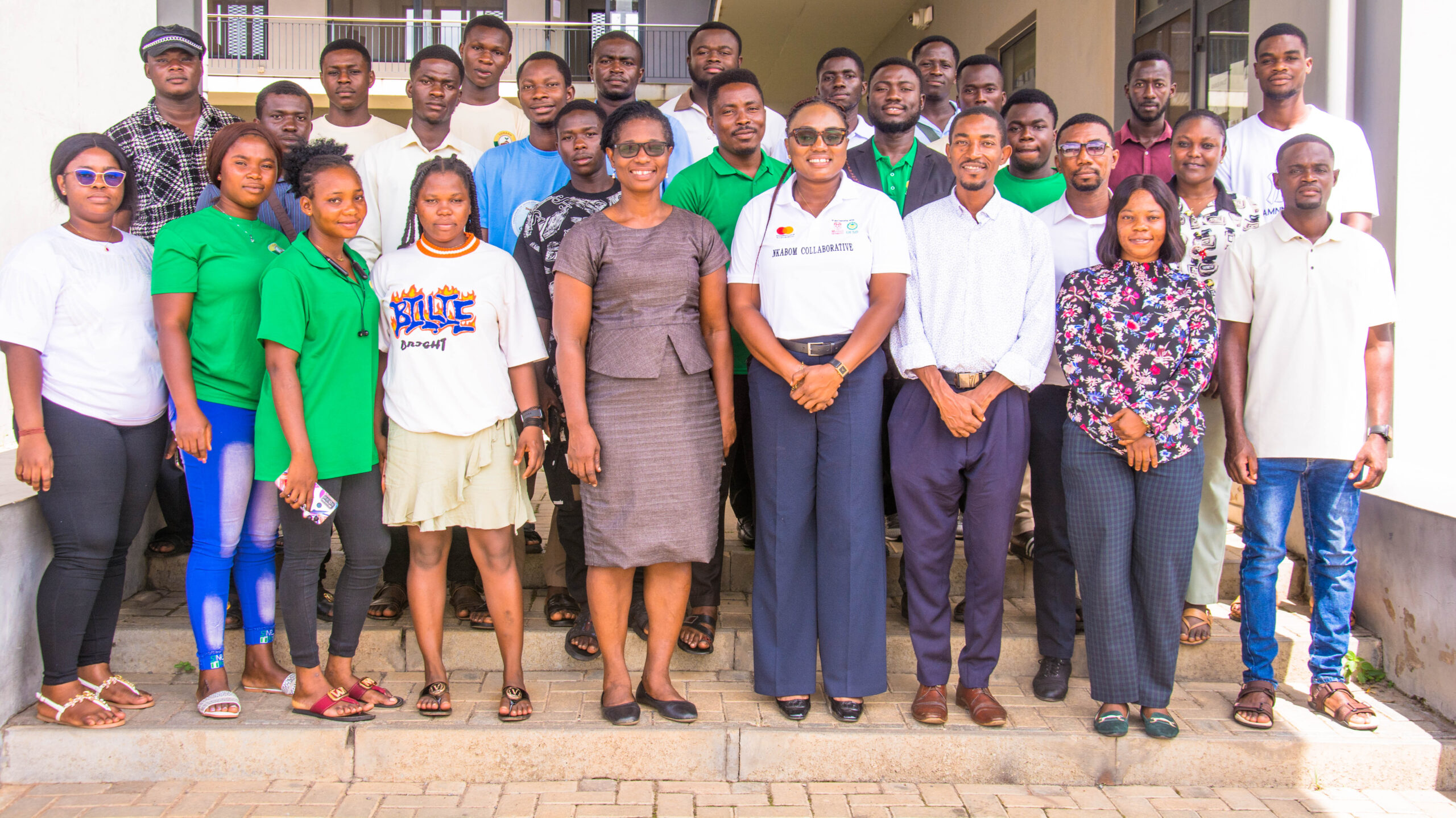A two-week capacity-building programme designed to empower rural micro-entrepreneurs in agro-business and aquaculture has commenced at the University of Environment and Sustainable Development (UESD), Somanya, Eastern Region.
The initiative, dubbed: Entrepreneurship and Small Business Management, forms part of the Nkabom Collaborative-a partnership involving the Mastercard Foundation, McGill University, six public Universities in Ghana, the Association of Ghana Industries (AGI), and UESD.
The 1st training session, held at the University’s Lecture Theatre 5, brings together participants from rural communities in and around Somanya made up of persons in youth and women’s groups, extension officers, agro-processors, waste managers, students in agriculture, under represented groups and differently abled persons- who are eager to build resilient and sustainable enterprises.
Participants will be taken through ten carefully structured modules, including: Introduction to Entrepreneurship, Opportunity Identification and Market Research, Business Model Development, Business Planning and Pitching, Financial Management and Budgeting, Legal and Regulatory Compliance, Marketing and Branding, Growth, Innovation, and Sustainability, Practical Session on Developing Promotional Content for Social Media and Final Pitch Presentation on a Business Idea.
In his opening address, the Project Coordinator of the UESD Collaborative, Prof. Edward Wiafe Debrah and Pro Vice-Chancellor of UESD, welcomed participants and urged them to take full advantage of the opportunity.
He emphasised the importance of diligence and commitment throughout the training, pledging the institution’s support in providing the necessary facilities and resources to ensure a successful learning experience.“This training is designed to transform your entrepreneurial journey,” he stated. “Take it seriously, be consistent, and remember that UESD is committed to supporting your growth and development.”
The Nkabom Lead for Entreprenuership, Dr. Eunice Stella Nyarko led the first module on Introduction to Entrepreneurship, emphasising that entrepreneurship is the process of identifying opportunities, taking risks, and creating value through innovation and initiative.
She highlighted that entrepreneurship contributes significantly to individual, community, and national development — creating jobs, driving innovation, and promoting economic growth.
Dr. Nyarko also discussed common challenges faced by Ghanaian entrepreneurs, including limited access to finance, inadequate managerial skills, and market competition. She encouraged participants to overcome these barriers by starting small, building networks, continuously learning, and leveraging digital tools.
“Every challenge is also an opportunity for innovation,” she noted.
In an engaging seminar on the same module, Dr. Jacob Ato Dodoo, of the School of Sustainable Development inspired participants to uncover their “hidden entrepreneur” not merely as business owners, but as creative problem solvers.
He encouraged participants to view challenges as opportunities, using a vivid metaphor: “While one person sees a broken bridge as a problem, another might see a chance to build something new an adventure park or a tourist site. That’s the entrepreneurial mindset: transforming problems into possibilities.”
Dr. Dodoo also stressed the importance of risk management and budgeting, illustrating his points with real-life business examples that demonstrated how innovation and resource optimization drive sustainability. He spoke about the connection between employee satisfaction and customer experience, adaptability in changing markets, and the value of cultivating a growth mindset one that views failure as a lesson rather than a setback.
Drawing from his own experience as a poultry farmer, Dr. Jacob highlighted the importance of resilience and self-reliance in entrepreneurship. Entrepreneurship is not just about money,” he said. “It’s about mindset how you see the world, how you respond to challenges, and how you turn setbacks into solutions. Once you are alive, you can always start again.”
In separate interviews, participants expressed excitement about the programme, noting that it offers valuable insights and practical skills they could apply in their work and communities.

